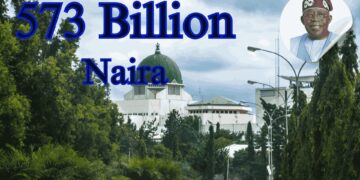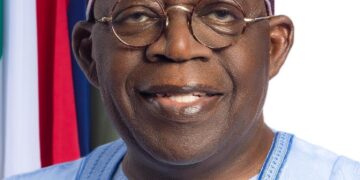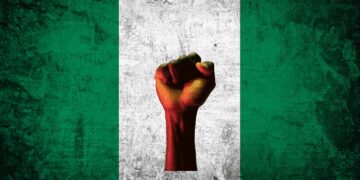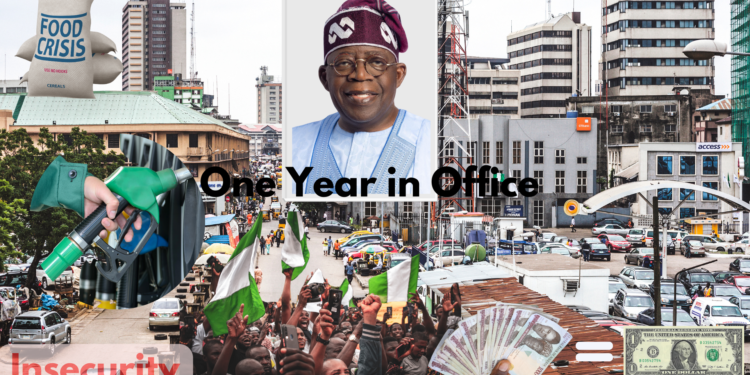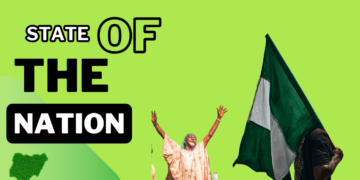As Nigeria approaches the one-year mark of President Bola Tinubu’s administration, the pressing question on everyone’s mind is: “Which way, Nigeria?” Reflecting on the past twelve months, we must critically evaluate whether Tinubu’s leadership has brought the hoped-for renewal or deeper despair.
Economic Woes: A Tale of Suffering
From the outset, Tinubu’s decision to remove the fuel subsidy heralded his entry into power but has since become a symbol of the administration’s disconnect from the plight of ordinary Nigerians. The subsidy removal, intended to stabilize the economy, has instead led to widespread suffering. The question remains: Has this policy been worth the severe inflation and the spike in transportation, food, and essential services costs? Can a nation thrive when its citizens are pushed deeper into poverty?
Critics argue that while the economy was indeed damaged before Tinubu took office, he cannot escape responsibility. Was he not involved in bringing his predecessors to power? The economic instability, compounded by the subsidy removal, has left many questioning the wisdom of these decisions. Can the administration continue to ask for more time, or is a radical shift in mindset required to address Nigeria’s problems effectively?
Insecurity: Have the Killings and Insecurity Stopped?
One year into Tinubu’s presidency, insecurity remains a significant concern. The persistent kidnappings, banditry, and communal violence beg the question: Has the government done enough to protect its citizens? Despite various efforts, the general sentiment is that Nigeria is no safer than it was a year ago. What more can be done to ensure peace and stability across the nation?
Leadership and Accountability: Is He the Chief of Poverty?
Tinubu’s supporters lauded him for his role in developing Lagos State, often shouting “ranka dei dei” in praise. However, his national leadership has drawn criticism for contributing to an “economic, moral, and political massacre.” The accusation that he is the “chief of the poverty of the nation” reflects the deep frustration and anger felt by many Nigerians. Does Tinubu recognize his role in this widespread discontent? What steps will he take to address these serious allegations?
Misallocation of Resources: Does the Government Need More Time or a Different Mindset?
The recent approval of 90 billion Naira for pilgrimage expenses has sparked outrage. In a country grappling with poverty and economic hardship, is this an appropriate use of resources? Critics argue that while pilgrimage is important, it is not urgent compared to the pressing needs of millions of Nigerians. Does the government truly need more time, or does it need a drastic change in priorities and mindset?
A Call for Restitution and Reform
For President Tinubu to restore public trust and improve Nigeria’s fortunes, a period of restitution and significant reform is necessary. The administration must:
- Economic Stabilization: Implement immediate measures to control inflation, create jobs, and provide social safety nets for the most affected populations. Can the government find a way to ease the economic burden on its citizens?
- Security Enhancement: Develop more effective strategies to combat insecurity and ensure safety for all Nigerians. How can the administration better protect its people?
- Transparent Governance: Foster a culture of transparency and accountability to rebuild public confidence. Will Tinubu’s government commit to openness and integrity?
- Inclusive Development: Ensure that economic growth benefits all segments of society, especially the marginalized and vulnerable. Can the administration guarantee that no Nigerian is left behind?
Will Tinubu’s “Renewed Hope” Materialize?
As President Tinubu enters his second year in office, Nigerians are asking: Will the promises of “Renewed Hope” be fulfilled? The challenges are immense, but with decisive and compassionate leadership, there is still a chance to turn the tide. Nigeria stands at a crossroads. Which way will it go? The answer lies in the actions and decisions of its leaders. It is time for President Tinubu to rise to the occasion, address the grievances of the people, and work towards a brighter, more equitable future for all Nigerians.





